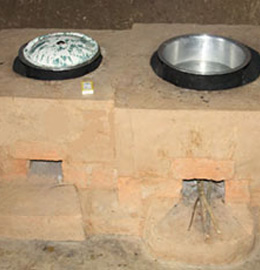Our Actions that Reduce Negative Impacts
E-Trip Africa is strongly committed to sustainable and responsible tourism, as we believe that this must be the foundation to build a successful company. Cutting corners and damaging communities, families, individuals, ecosystems, and our planet has been happening for far too long.
After many years in the African Tourism Industry we have worked along-side some of the greatest development agencies in the World. With the experience our staff has accumulated, we have been able to successfully determine the principal negative impacts of tourism in the areas that we work. This information has helped us to develop a plan of action in order to reduce these impacts as much as possible and offset those that we are not able to eliminate.
Paper Consumption:
We record all paper usage including all publications, letters, envelopes, business cards, post cards, pre departure materials, printer paper, and even toilet paper that is used by our company and use the Trees, Water & People (TWP) calculator to determine how many trees our consumption has harvested during the previous year.
We finance the planting of 10 saplings for every tree that we used. The trees are planted by TWP and their local partner ARBOLES in El Salvador where they have been running a tree planting program since 2001. Additionally we plant 10 saplings locally for every tree that we used. These trees are planted by our staff throughout East Africa, bringing positive impacts in the ecosystems we visit.
Carbon Emissions:

We reduce our carbon emissions by using energy efficient equipment, solar power, and have eliminated un-necessary trips around town with our vehicles.
We keep our vehicles in good running condition, properly tuned, and with good tires that are at the correct PSI.
We use the TWP Carbon Emissions calculator by recording: every mile traveled by our staff in vehicles, planes, boats, motorcycles, matatus, or any other type of motorized vehicle; our monthly electricity consumption and propane gas usage; and the amount of meat used to prepare staff meals.
We manufacture rocket stoves and donate them to local families. Each stove used to replacement the traditional 3 stone open cooking fires reduces the estimated annual CO2 emissions by 1.97 tons and the wood consumption an estimated 47%.

Wildlife:
Our drivers are required to follow certain rules that protect the wildlife and the fragile African ecosystems. Drivers shall not exceed 30 mph while driving in parks or reserves. Never drive off of the existing roads and tracks. The vehicle should never come closer than 30 feet to any animal. There should never be more than 4 vehicles around any feeding animal at a given time.
Road Dangers:
In order to reduce the risk of dangers created on the road, it is strictly forbidden to travel after dark. We provide our drivers with high quality proactive training and we maintain our vehicles to the highest standard to ensure that they will properly react to poor road conditions and that we do not increase the holes, washboard, and bumps in the roads.
Health:
It is very common in Africa that men that are on the road for long periods of time have a much higher level of infection of HIV/AIDS. We have special education programs for our drivers, guides and cooks that educate them about sexual transmitted diseases. We provide condoms for our staff free of charge.
Fair Wages:
We believe in paying a fair wage to all of our employees. While much of Africa has very low wage standards we believe that we pay our employees a fair living wage, one that allows our employees to maintain a descent standard of living for themselves and their families.
Wage Equality:
It is our policy that both men and women doing the same job with the same abilities earn the same salary. We activily encourage motivated women to enter into our management programs.
In each country office, we ensure that the lowest paid employee will never earn less than 30% of what the highest paid employee earns. Many companies have local mangers that earn over $1,500 per month while lower employees such as guards, house keepers and cooks are paid the minimum wage of $55 per month. We don’t accept these wage differences as fair.
Recommended









